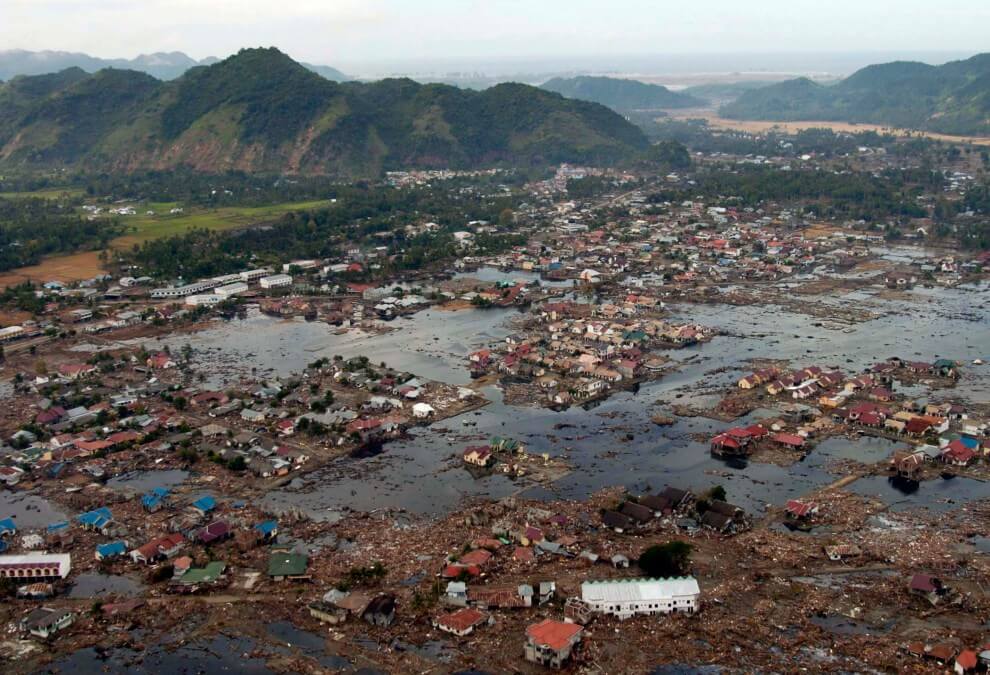Seminar: Do disaster experiences impact public opinion on climate change in European countries?

08 01 2024
Category: seminar
We cordially invite you to upcoming talk on Center for Systemic Risk Analysis Seminar.
The seminar will be held on 16 January 2024 from 12:00 to 13:30 CET in our conference room, Dobra 56/66, Warsaw, room 2.90, as well as on the Zoom platform (link to the meeting below).
Our Guests: Piotr Cichocki, Piotr Jabkowski, Piotr Matczak
Title: Do disaster experiences impact public opinion on climate change in European countries?
Center for Systemic Risk Seminar (University of Warsaw) | Piotr Cichocki, Piotr Jabkowski, Piotr Matczak
Join Zoom Meeting: https://uw-edu-pl.zoom.us/j/97171322690?pwd=ejdURGp6OXQvOFN4ZUxFK1M5eXdNUT09
Meeting ID: 971 7132 2690
Passcode: 822378
Follow CSRA on YT: https://www.youtube.com/channel/UCBR7Vek12e1F9oWNfq-IKkA
Photo: U.S. Navy photo by Photographer’s Mate 2nd Class Philip A. McDaniel, Public domain, via Wikimedia Commons
Abstract
Do disaster experiences impact public opinion on climate change in European countries?
Piotr Cichocki, Piotr Jabkowski, Piotr Matczak
Public opinion has been identified as an essential factor for effective climate policy implementation, and many studies explore socio-economic determinants of public perception of climate change, its causes, and consequences. Besides, several analyses focused on how far experiencing events related to climate change (such as extreme and rapid weather events, temperature anomalies, and natural disasters) influence opinion on climate. (1984) “window of opportunity” thesis suggests that willingness to accept some climate policy increases during and shortly after an event but declines afterwards. Thus, the “window of opportunity” argument has profound climate change policy implications; at the same time, the mechanism is under-researched as existing studies offer a confusing picture of the issue. Some studies claimed the impact of experience on opinion about climate change. Taking floods that occurred in England in 2015 as a case study of a disaster event, Demski et al. (2017) demonstrated that direct experience of flooding leads to an overall increased salience of climate change, while Spence et al. (2011) indicated that experience floods lead to more concern over climate change. In turn, the analysis based on four waves of a representative population survey in Germany and weather records from the postal code areas where respondents live showed that experiencing seasonal temperature changes influences personal climate change concerns and the willingness to mitigate climate change (Pfeifer & Otto, 2023). At the same time, several studies demonstrated no impact of disasters on public opinion. Based on the individual-level multi-wave panel survey data in Germany collected from 2016 to 2019 with weather data from 514 weather stations, Gärtner and Schoen (2021) indicated that personally experiencing unusual or extreme local weather did not shape people’s awareness of climate change. Similarly, a study by Whitmarsh (2008) conducted among flood sufferers in the south of England indicated that experience has negligible impact on understanding causes and accepting responses to climate change. Besides, a few studies explored how individuals perceive changes in climate-related events over time and how specific weather events impact their subjective well-being. The findings of these studies suggest that people tend to notice and be affected by increases in events such as flooding and heavy rainfall, with potentially long-lasting effects on life satisfaction. For instance, Taylor et al. (2014) used the UK national survey data to demonstrate that heat waves and hot summers were perceived as less common during respondents’ lifetimes, while flooding, periods of heavy rainfall, coastal erosions, and mild winters were perceived to have increased in frequency and cold winters were perceived to be unchanged. In turn, the study by von Möllendorff and Hirschfeld (2016) utilised German representative panel data (2000–2011) to demonstrate the significant reduction of life satisfaction due to storms, hail events, and floods; the effect from floods persists much longer. Summarizing previous results, we can indicate that: (a) no explicit agreement can be found in the literature whether experiencing extreme climatic/weather conditions impacts peoples’ opinion or behaviour; (b) a various set of socio-demographic, psychological and other contextual variables are claimed to influence perception of climatic/weather conditions and events; (c) studies vary conceptually and geographically, which makes it challenging to derive a model of the influence of experiencing the conditions and events on the opinion on climate change.